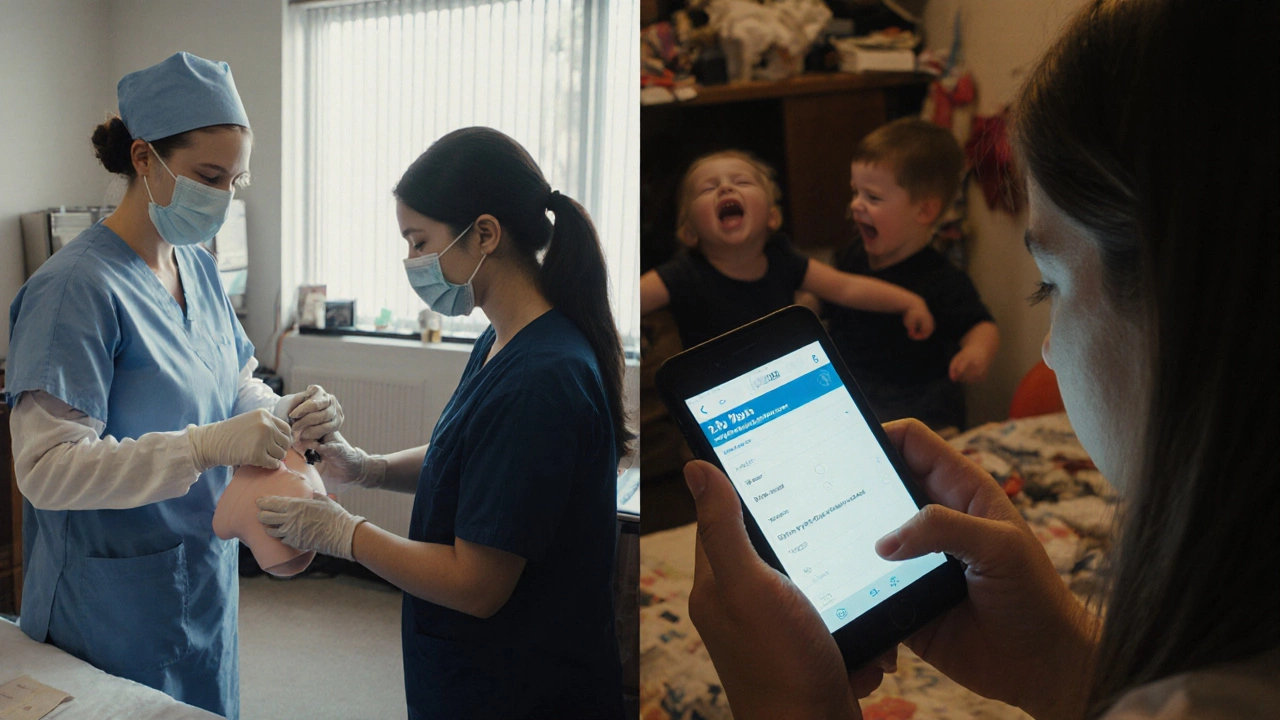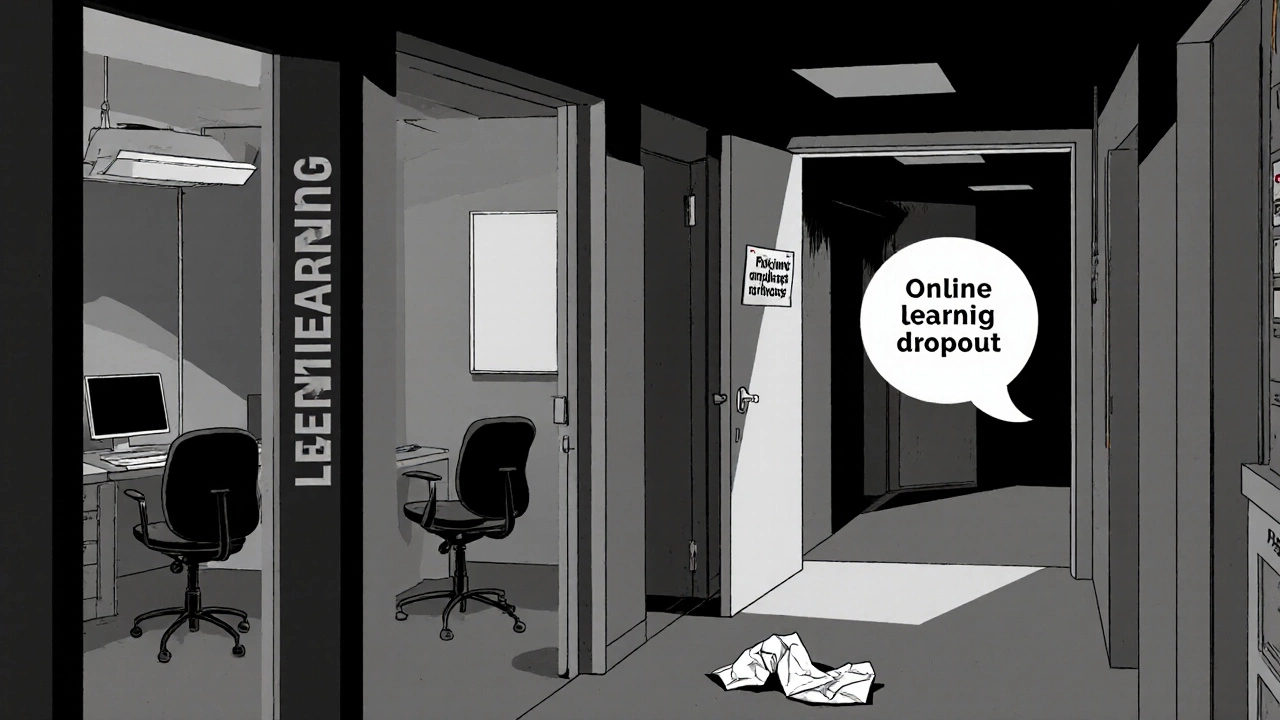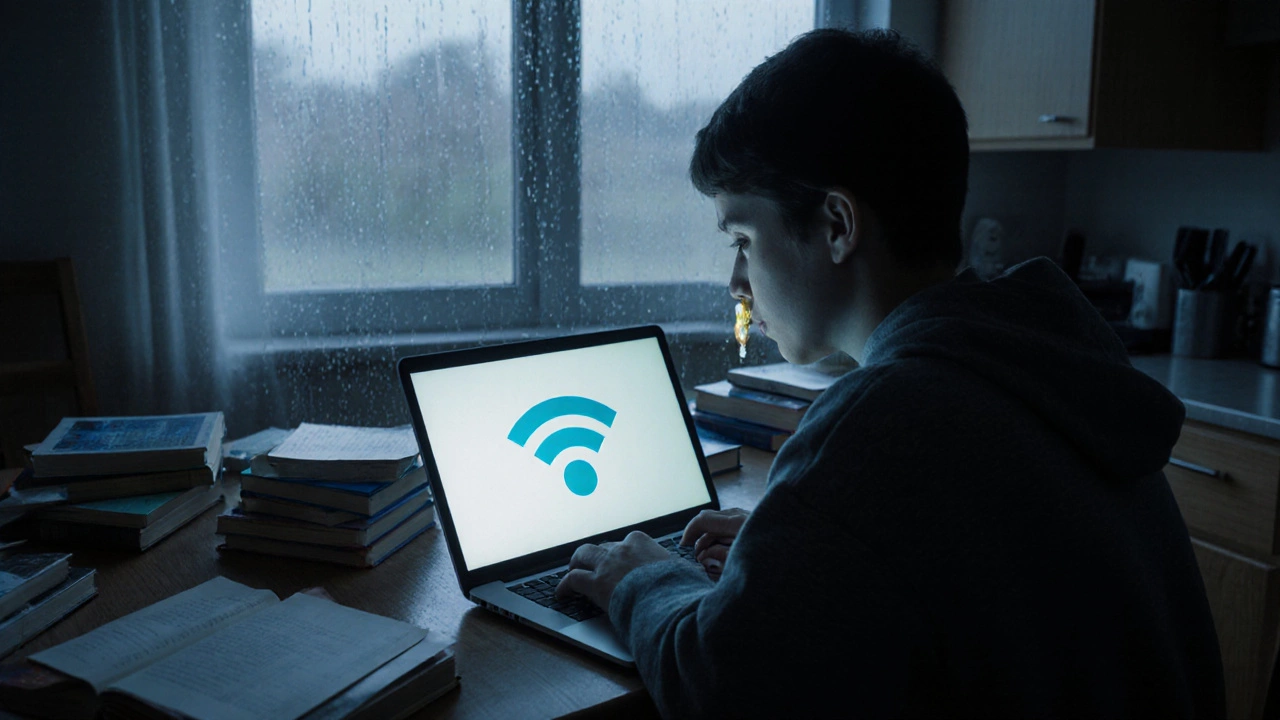Distance Education Suitability Checker
How Ready Are You for Distance Education?
This tool helps you assess your personal readiness for online learning based on key challenges identified in our article. Answer honestly to get your personalized score.
Distance education sounds perfect on paper: learn from home, set your own schedule, skip the commute. But if you’ve actually tried it, you know it’s not that simple. Millions of students worldwide are enrolled in online degrees, certificate programs, and self-paced courses - and many are struggling in silence. The truth? Distance education comes with real, everyday problems that aren’t talked about enough.
You’re on your own - no one’s checking in
In a traditional classroom, your teacher notices when you’re quiet, late with assignments, or zoning out. In distance education, no one notices unless you speak up. There’s no one to ask if you’re okay. No one reminds you to log in. No one walks over to your desk and says, “Hey, you missed last week’s quiz.”
Studies from the University of Michigan in 2024 showed that students in fully online programs were 40% more likely to drop out in the first month than those in hybrid or in-person classes. Why? Because isolation hits hard. Without daily social cues, motivation fades fast. You start skipping lectures. Then assignments. Then logging in at all. It’s not laziness - it’s lack of structure.
Technology isn’t your friend - it’s a barrier
“Just need a laptop and Wi-Fi,” they say. Easy for someone with reliable internet in a city. Not so easy if you’re in a rural area, sharing a phone with three siblings, or living in a place where power cuts last for hours. In Australia, over 12% of households in regional areas still don’t have broadband speeds suitable for video streaming. That’s not a small number - that’s millions of students locked out.
And it’s not just connectivity. Platforms glitch. Zoom crashes. Learning portals freeze during exams. You spend an hour trying to upload a 5-minute video assignment, only to get an error message at 11:58 PM the night it’s due. No one waits for you. No one resets the deadline because your internet died. The system doesn’t care.
You miss hands-on learning - and it matters
Can you learn nursing by watching videos? Sure. But can you learn to give an injection, handle a panicked patient, or read body language in a crisis? No. Can you learn welding, plumbing, or carpentry through a screen? Not really. Can you practice public speaking without real feedback from classmates and professors? Not effectively.
Fields like healthcare, engineering, trades, and even psychology rely on physical practice. Online programs often skip these parts - or outsource them to expensive, inconvenient labs. A nursing student in Queensland told me she had to drive 300 kilometers to a hospital for a single two-hour simulation session. That’s not education - that’s a logistical nightmare.

Employers still don’t trust it - even in 2025
Yes, big companies like Google and Amazon now hire people with online degrees. But that’s the exception. Most mid-sized businesses, government agencies, and traditional industries still prefer candidates with in-person degrees. Why? Because they don’t know how to judge quality.
A 2025 survey by the Australian Council for Educational Research found that 58% of hiring managers in Australia said they “had less confidence” in candidates with fully online degrees, even when the curriculum was identical to on-campus programs. The stigma isn’t gone. It’s just quieter now. You’ll still get asked in interviews: “Where did you attend?” - and if you say “online,” you can see the hesitation.
It’s harder to build networks - and networks get you jobs
Remember that classmate who became your roommate, then your coworker, then your business partner? That doesn’t happen online. Networking isn’t just about LinkedIn connections. It’s about coffee chats after class, group projects that turn into friendships, professors who remember your name and write you a recommendation.
In distance education, you rarely meet anyone face-to-face. You don’t bump into people in the library. You don’t chat after a lecture. You don’t get invited to study groups that turn into career opportunities. Without those organic connections, your job search becomes a lonely, transactional grind.
Self-discipline isn’t a skill - it’s a luxury
People say distance learning requires “strong self-discipline.” That’s not helpful advice. It’s a cop-out. Self-discipline isn’t something you magically develop when you enroll in an online course. It’s built over time - with structure, support, and accountability.
Think about it: most adults who succeed in online learning already have stable routines - they’re working full-time, have no kids, live alone, and have quiet spaces to study. What about the single parent juggling three jobs? The teenager studying in a noisy shared room? The person recovering from illness? They’re not lazy. They’re just not set up to succeed in a system designed for the privileged few.

Assessments feel unfair - and they often are
Proctored exams? They’re invasive. Open-book tests? They’re meaningless. Take-home assignments? They’re easy to cheat on - and easy to get flagged for cheating even if you didn’t.
Many online programs use AI-based proctoring tools that track eye movement, background noise, and even facial expressions. One student in Perth was flagged for “suspicious behavior” because she had to pause the exam to calm down her crying toddler. Her grade was suspended. No appeal process. No human review.
And let’s be honest - if you’re taking a course in accounting, why does your exam need to watch you breathe? The system isn’t protecting integrity. It’s protecting the institution from liability - and pushing the burden onto the student.
There’s no real community - just forums and chatbots
Online programs love to say they have “vibrant online communities.” What they mean is: a discussion board where three people post once a week, and a chatbot answers the same 10 questions over and over.
Real community means someone who remembers your name. Someone who texts you, “Hey, did you finish that module?” Someone who shares a meme that makes you laugh after a long day. You don’t get that in most distance programs. You get automated emails. Generic feedback. And silence.
One student in Melbourne told me she emailed her professor three times about a confusing concept. She got a reply after 11 days - and it was copied from a template. She dropped out the next week.
It’s not for everyone - and that’s okay
Distance education isn’t broken. It’s just not universal. It works brilliantly for some: self-motivated adults with stable lives, clear goals, and good tech access. But for students who need structure, support, human interaction, or hands-on training? It’s a trap.
If you’re considering distance education, ask yourself: Do I have a quiet space to study? A reliable internet connection? Someone who checks in on me? A job or income that can absorb delays? If you answered no to more than two of those, think twice.
There’s nothing wrong with choosing a local college, a part-time program, or even a vocational course with in-person labs. You’re not failing if you need to be in a room with other people to learn. The system should adapt to you - not the other way around.
Is distance education cheaper than traditional college?
Not always. While tuition might be lower, hidden costs add up: high-speed internet, a reliable computer, software licenses, proctoring fees, and travel to in-person labs. In many cases, total costs end up being similar - or even higher - than attending a local campus.
Can you get a good job with a distance education degree?
Yes - but it’s harder. Degrees from accredited institutions (like universities with brick-and-mortar campuses) are accepted. But employers often judge the delivery method, not the quality. You’ll need to prove your skills through portfolios, internships, or certifications to stand out.
Why do so many people drop out of online courses?
Most dropouts happen because students feel isolated, overwhelmed by tech issues, or unsupported. Without daily structure or human connection, motivation fades. A 2024 study found that 62% of dropouts cited loneliness and lack of accountability as their main reasons.
Are online degrees respected by employers in Australia?
Some are - especially from well-known universities like the University of Melbourne or ANU. But many employers still prefer in-person degrees, especially in government, healthcare, and education sectors. The perception gap is shrinking, but it’s still there.
What’s the biggest mistake people make when starting distance education?
Thinking it’s easier than traditional school. Distance learning demands more self-management, not less. People who treat it like a hobby - logging in when they feel like it - almost always fail. Treat it like a job: set hours, stick to deadlines, and reach out for help early.
If you’re thinking about distance education, don’t ignore the downsides. Know them. Plan for them. And if your situation doesn’t match the ideal profile? There are other paths - and they’re just as valid.
